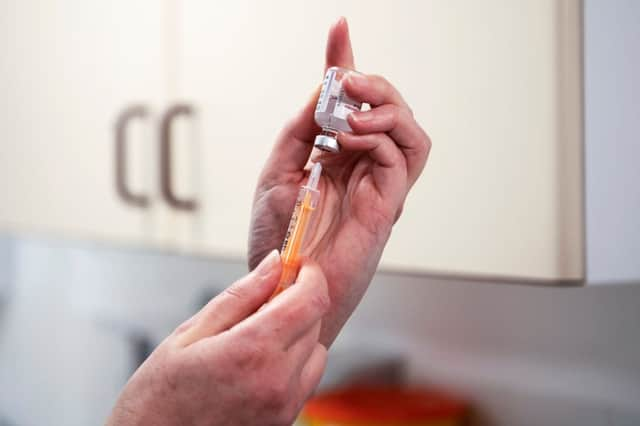Scientists have created a new online guide to fight Covid vaccine myths - what you need to know


Scientists from across the world have created an online guide aimed at tackling misinformation about the Covid-19 vaccines.
The expert guide provides the latest information and reliable evidence about the vaccines, and challenges myths and fears that have emerged in relation to the jabs.
Understanding the facts
Advertisement
Advertisement
Led by the University of Bristol, the scientists are appealing to all members of the public to understand the facts, follow the guidance and spread the word, in the hope it will encourage more people to have the vaccine.
Professor Stephan Lewandowsky, lead author of the guide, explained: “Vaccines are our ticket to freedom and communication about them should be our passport to getting everyone on board.
“The way all of us refer to and discuss the Covid-19 vaccines can literally help win the battle against this devastating virus by tackling misinformation and improving uptake, which is crucial.
“That’s why we’ve produced this handbook so everyone has the basics, as well as more comprehensive information, at their fingertips and can do their part in sharing facts, not fiction, to put us on the road to recovery rather than a path of further suffering.”
Advertisement
Advertisement
The guide addresses concerns which have been raised over the speed at which the vaccines were approved and suggestions that “corners were cut”, noting that they were tested following the same process as previous vaccines and on more participants than many earlier inoculations for other diseases.
Scientists said: “Even though Covid-19 vaccine development was accelerated, vaccine testing was still required to proceed through a rigorous series of steps to establish the vaccines’ safety and efficacy.
“The vaccines’ safety will continue to be closely monitored as they are rolled out, to ensure they don’t have serious side effects at unacceptable rates.
“Because of the risk from Covid-19 and its prevalence, the trials have proceeded faster than has been possible with other vaccines: Many tens of thousands of people signed up rapidly to participate in vaccine trials, compared to the more usual year or 18 months it takes to recruit a fraction of that for other vaccines.”
Advertisement
Advertisement
Myths relating to the safety of the vaccines are also addressed, including false claims that having the vaccine will give you Covid.
The guide states: “There is negligible risk of any vaccine giving you the disease - and in the case of Covid-19, none of the vaccines currently being rolled out use the live virus at all, not even in a weakened form. This myth is based on the misconception that the vaccines contain a live version of the virus.”
Tackling social media claims
The Covid-19 Vaccine Communication Handbook sets out the facts about the vaccines, highlighting how they are overwhelmingly safe and effective.
It is intended that the guide will help to combat conspiracy theories and other misleading claims that are being shared on social media, which could potentially harm vaccine uptake.
Advertisement
Advertisement
Co-author Professor Adam Finn, a University of Bristol virologist who has played a key role in the Covid-19 vaccine developments, said: “Accurate information about vaccines is becoming harder to distinguish from convincing but misleading fiction.
“This reduces uptake and so their impact on public health and harms us all. Although vaccines enjoy majority support that politicians can only dream of, we can no longer take this for granted.
“It’s time to take the initiative in ensuring people are not duped into making wrong decisions that harm them, their children and their communities.”
Topics in the guide include public behaviour and attitudes, as well as policy, facts, and misinformation.The authors say the launch of the handbook comes at a “crucial time” given the increasing infection rates across the UK, with scientists warning that the “safest and most effective vaccines against Covid-19 are of no use if people cannot, or will not, take them.”
Advertisement
Advertisement
Professor Lewandowsky added: “It’s important to challenge and debunk misinformation in a positive, constructive manner.
“I encourage people to approach this by providing a truth sandwich – start with the key facts, including that the vaccines have been shown to be 95% effective and have been comprehensively tested without cutting any corners.
“Then address the misinformation. For instance, if people say the vaccine can’t have been tested properly because it was developed so quickly, explain why this isn’t the case.
“Given the severity of the pandemic, more resources and expertise than ever were dedicated to this effort. Due to its high profile, volunteers for the trials were recruited much faster than usual.
Advertisement
Advertisement
“The Ebola vaccine effectively took 10 months from initial testing to trials in the field, so this has been done before. Then finally reiterate the facts so they stay fresh.”
Where can I read it?
To read more information about the Covid-19 vaccines, you can access and download the handbook online.